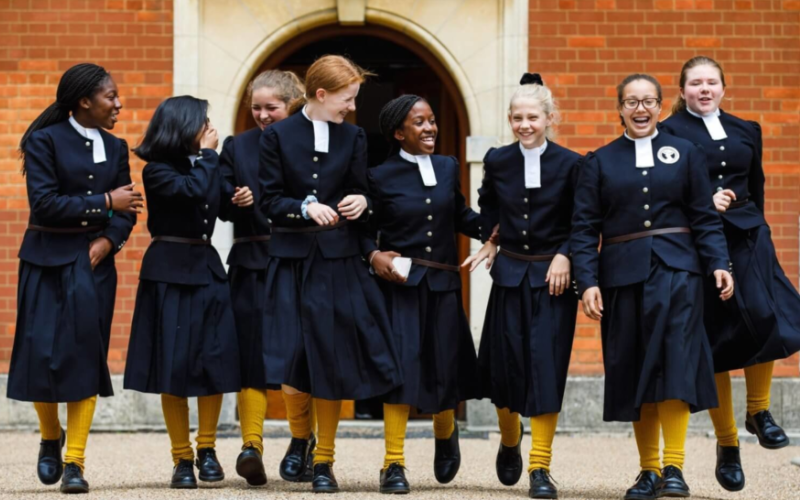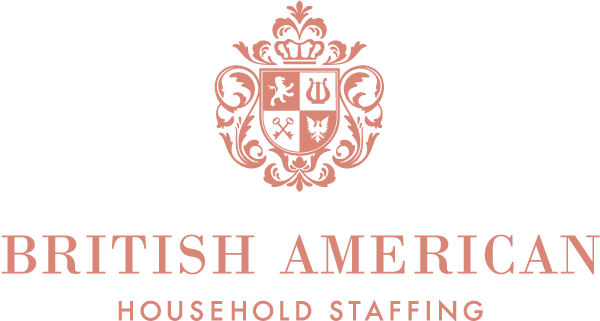
Ten Ways A London Education Differs For American Families
Need to know information for American families relocating to the UK
This week, we are pleased to introduce our clients to ESB Consulting. ESB Consulting is a premium family and education consultancy based in London, founded by Sabina Borton, a royally appointed Norland Nanny and maternity nurse, and Edward Borton, the former Assistant Headmaster of King’s College School, Wimbledon. ESB offers advice and guidance to families navigating the complexities of the British education system and competitive school admissions across London, Surrey, the Home Counties, and the South West of England. Click here to connect with ESB.
Relocating to London is a thrilling opportunity for many families – whether for work, lifestyle, or cultural experience. London’s educational offering is world-renowned, blending academic excellence with centuries of tradition.
However, for American parents, navigating the British school system can be unexpectedly complex. While the UK and U.S. share a language and certain educational values, the structure, terminology, and admissions culture in London differ markedly from what U.S. families may be used to.
Here are ten key ways in which the London education system diverges from the American model – and what families need to know to make informed, confident decisions.
1. Two Sectors, One Decision
The UK offers two main types of school sectors:
State Schools: Like US public schools, these are free, managed by a local council, and government-funded, with places typically allocated based on proximity to the school. In London, many of the best state schools are heavily oversubscribed, and property prices in catchment areas (i.e., the usual distance you have to live from a school to secure a place) are often over-inflated.
Independent Schools: Also called “private” schools, these are fee-paying and usually academically selective. While only 6–7% of children attend private schools across the UK, in London this figure rises to around 20%, and significantly higher in affluent boroughs like Kensington & Chelsea.
2. School Or House First: It Depends On The Sector
State school admissions in London are heavily influenced by where you live, and families typically need to have secured a property – whether rented or purchased -before applying for a school place. As catchment areas can be extremely small, sometimes just a few hundred metres, the exact home address can be critical for those hoping to achieve places at the most popular state schools. This means finding and securing a suitable home comes first, with school admission decisions in the hands of the local authority.
By contrast, independent schools are generally more flexible regarding location; you don’t need to wait until you’ve signed a lease or purchased a home to register your child, making them a less stressful option for international relocators. However, remaining local to your child’s school remains important for their wellbeing and your ability to become part of the local parent community.
3. Register As Soon As You Know You Will Need A Place
Unlike in the U.S., where school admissions often allow for flexibility and late applications, London schools – particularly independent ones – require early, strategic planning. For many of the capital’s most sought-after schools, registration deadlines close well in advance, sometimes just weeks after a child is born. Missing these dates can mean joining long waitlists with little chance of success, no matter how bright or brilliant your child is.
Even state schools, though free and non-selective, require applications to be submitted 6 to 9 months before major entry points in Reception (the September after your child turns 4 years old) or Year 7 (the September after your child turns 11 years old). For American families used to rolling admissions or mid-year starts, the inflexibility of the London system can be a surprise. Acting early is not just helpful – it is essential.
4. Spring Chickens: London’s Early Learners

One of the biggest cultural adjustments for American families is how early British children begin formal schooling. Nursery education typically starts around age 2, with children attending at least five morning sessions a week. By the September after a child turns 4, they enter ‘Reception’ – the first year of compulsory school, equivalent to pre-kindergarten or early kindergarten in the U.S. By age 5, British children are already well into phonics, writing, and numeracy, while many U.S. preschools still focus on exploratory play and socialisation.
This early emphasis on academic readiness often means London children are reading, writing, and performing basic arithmetic well before many of their American counterparts. As a result, children arriving from the U.S. may need additional support to bridge the gap, particularly if entering the system mid-year or without prior nursery experience.
5. Competitive Admissions In The Independent Sector
While admissions to London’s independent schools vary – ranging from first-come, first-served and academically selective processes to a ballot – most admissions occur at fixed, key entry points: 4+ (the start of formal schooling), 7+ (the transition into preparatory school), 11+ (the most common entry into senior school), and 13+ (often the typical entry point for boarding schools).
At highly competitive schools such as St Paul’s and Westminster, demand far exceeds available places, often attracting 10 or more applicants per spot at key entry points. Therefore, choosing the right nursery or school at each stage is crucial for families targeting London’s top tier schools; many begin preparing their children two to three years in advance through tutoring and familiarisation with the admissions process. This level of early commitment and strategic planning can come as a surprise to American families.
6. A Dying British Tradition: Single-Sex Education
While co-educational schools are increasingly common in the U.S., London remains home to a significant number of prestigious single-sex institutions. Many of the capital’s most sought-after schools remain boys-only or girls-only. The rationale is often rooted in history and pedagogy: single-sex environments are seen to reduce social distractions, tailor teaching methods to gender-specific learning styles, and cultivate leadership and confidence.
However, attitudes are shifting: historic boys’ schools such as Westminster and King’s College School, Wimbledon are transitioning to co-educational models to reflect evolving societal expectations, promote gender inclusivity, and offer greater flexibility for families.
7. Boarding: The Very Best of British Education
Boarding schools are a longstanding and respected feature of the British education system, typically beginning at 13, although some schools offer weekly or flexi-boarding from as young as 8. Unlike in the U.S., where boarding may carry associations with behavioural or academic challenges, in the UK – and particularly among London families – boarding is viewed as prestigious. These schools offer academic rigour, extended school days, and exceptional extracurricular and sporting facilities.
While London itself has very few boarding schools, many families in the capital choose to send their children to leading boarding schools within 1-hour of central London, in areas such as Surrey, Berkshire, Oxfordshire, and beyond.These schools provide more space, structured routines, and a strong sense of community that many London day schools, limited by space and urban constraints, cannot match.
8. Uniforms Are Uniform
School uniforms are the norm in virtually all London schools. Typically, they include blazers and ties, and some traditional schools even require boaters or academic gowns. In addition to everyday uniform, most schools also require a full games or PE kit, often including items for multiple sports such as rugby, hockey, or cricket, depending on the term. For American families accustomed to more casual dress codes and flexible athletic wear, this emphasis on uniformity, formality, and presentation – both in and out of the classroom – can be surprising, reflecting broader British values of discipline, identity, and tradition.

9. A Narrower Academic Focus
By age 16, British children sit GCSE exams in around 9 to 11 subjects. These exams are pivotal, as they assess a broad range of core academic skills across disciplines such as English, Maths, Sciences, Humanities, and Languages. Performance in GCSEs strongly influences progression to the next stage of education.
After completing GCSEs, most students specialise by choosing just 3 to 4 A Level subjects, focusing deeply on areas relevant to their intended university courses or career paths. This concentrated study allows for advanced mastery but also means students cover fewer subjects overall compared to their American counterparts.
10. There Is No Single Best School, Just The Right One For Your Family
London’s educational landscape is not only academically demanding – it is culturally complex. For families arriving from the U.S., success in navigating this system is rarely about choosing the most well-known school. It is about understanding a different set of expectations, traditions, and unspoken rules. The right school for one family may not suit another, even if it ranks highly on paper. Academic ability, personality, commute, and family values all influence what constitutes the ‘best fit’ – a nuance that’s easily lost without local knowledge and long-term perspective.
That said, American families who prefer to stay within a familiar educational framework do have the option of enrolling in one of London’s well-established U.S. curriculum schools. Institutions such as The American School in London (ASL) and the ACS International Schools (with campuses in Cobham, Egham, and Hillingdon) offer American-style teaching, a U.S. calendar, Advanced Placement (AP) courses, and college counselling tailored to U.S. university admissions. These schools can be an excellent choice for families planning a short-term stay or aiming to maintain curricular continuity.
About ESB Consulting:

ESB Consulting provides founder-led, bespoke guidance to families navigating the complexities of London school admissions. Their discreet, relationship-driven approach is tailored to each family’s individual circumstances, aspirations, and long-term vision. Co-founder Edward Borton – holding qualifications from both Oxford University and Harvard University, and formerly Assistant Head at King’s College School, Wimbledon, one of the UK’s most competitive independent schools – offers rare insider insight into what truly sets top-tier schools apart.
Central to their methodology is a unique three-part assessment process – comprising online evaluation, written tests, and character profiling for children aged 6 and above – which allows ESB to gain a holistic understanding of each child. From thoughtfully assessing children and challenging parental assumptions to advising on every stage from nursery to senior school, ESB specialises in guiding families toward schools that align not just with academic ambition, but with personal values, character, and lifestyle.
ESB also supports families moving to Surrey, the Home Counties, the Cotswolds, and the South West of England, offering expert insight tailored to each region’s distinctive educational landscape.
Related Blog Posts
